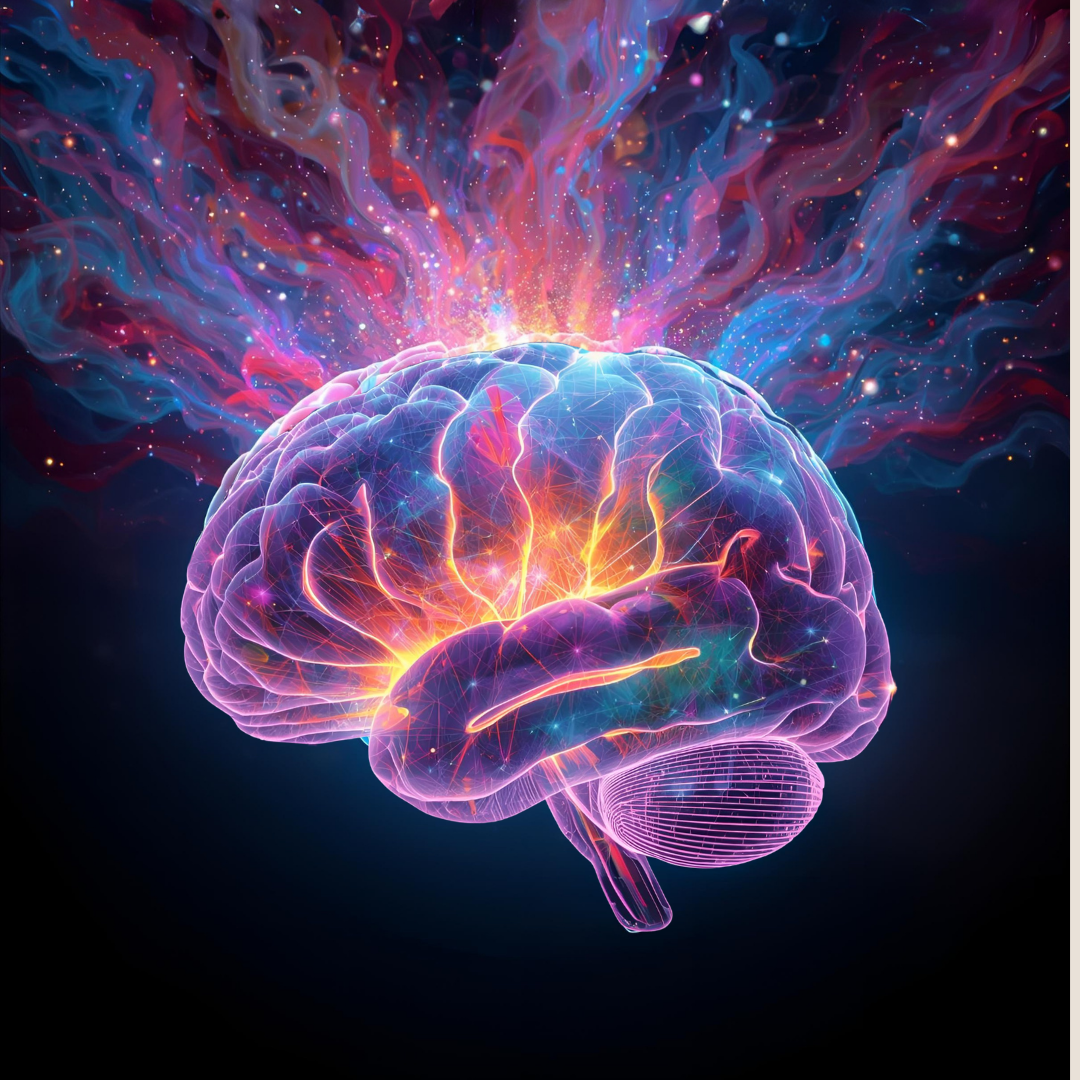The Mitochondrial Theory of Aging: Your Cellular Clock

Welcome Back to Part 3 of Our Mitochondria Series
In our last instalment, we explored how nutrition and lifestyle choices can supercharge your mitochondrial health, helping you delay aging, boost energy, and embrace a more vibrant life. We hope you've started incorporating some of those transformative tips into your daily routine!
Today, in Part 3, we're diving even deeper. We'll uncover how mitochondrial dysfunction can accelerate aging and contribute to chronic diseases. More importantly, we'll reveal how understanding these mechanisms empowers you to take control of your health and vitality.
Our series so far:
-
Understanding Mitochondria—Your Body’s Energy Generators
-
Factors Affecting Mitochondrial Health—Nutrition and Lifestyle
-
Mitochondrial Dysfunction—Implications for Aging and Disease
-
Enhancing Mitochondrial Function—Supplements, Diet, and Lifestyle Interventions
Let's continue this exciting journey to unlock the secrets of these tiny powerhouses. By the end of this article, you'll understand how to combat the effects of mitochondrial dysfunction, helping you look better, feel stronger, and live life to the fullest.
Imagine your mitochondria as the batteries powering every cell in your body. Over time, factors like oxidative stress and DNA mutations can drain these batteries, leading to decreased energy production and signs of aging. This concept is known as the Mitochondrial Theory of Aging—the idea that accumulated damage to mitochondrial DNA over time leads to diminished function, contributing to the aging process.
Signs Your Mitochondria Need a Boost
Are you experiencing:
-
Persistent Fatigue: Feeling tired even after a full night's sleep?
-
Muscle Weakness: Struggling with activities that used to be effortless?
-
Cognitive Decline: Noticing memory lapses or difficulty concentrating?
These could be signals that your mitochondria are not functioning at their best. But don't worry—recognizing these signs is the first step toward rejuvenation.
Mitochondrial Dysfunction: The Silent Accelerator of Aging and Disease
1. Neurodegenerative Diseases
-
Alzheimer's Disease: Impaired mitochondria contribute to the buildup of amyloid-beta plaques, leading to memory loss and cognitive decline.
-
Parkinson's Disease: Mitochondrial dysfunction affects dopamine-producing neurons, causing movement difficulties and tremors.
-
Amyotrophic Lateral Sclerosis (ALS): Abnormal mitochondrial function leads to muscle weakness and paralysis, impacting quality of life.
2. Metabolic Disorders
-
Type 2 Diabetes: Poor mitochondrial function can lead to insulin resistance and impaired blood sugar control, making it harder to maintain a healthy weight.
-
Obesity: When mitochondria don't efficiently burn fat for energy, it can lead to weight gain and difficulty shedding pounds.
-
Cardiovascular Diseases: Damaged mitochondria in heart cells can result in decreased cardiac function and increased risk of heart failure.
3. Other Conditions
-
Chronic Fatigue Syndrome: Energy deficits from dysfunctional mitochondria can cause persistent exhaustion, limiting your ability to enjoy daily activities.
-
Cancer: Altered mitochondrial metabolism can contribute to uncontrolled cell growth, emphasizing the importance of mitochondrial health in prevention.
What Drains Your Cellular Batteries?
Understanding the culprits behind mitochondrial dysfunction empowers you to take action.
-
Oxidative Stress
Excessive free radicals—unstable molecules that damage cells—can harm mitochondrial DNA, leading to decreased function and accelerated aging.
-
mtDNA Mutations
Both inherited and acquired mutations can impair mitochondrial performance, affecting energy production and cellular health.
-
Impaired Biogenesis
A decrease in the production of new mitochondria means less energy and more signs of aging. Supporting mitochondrial biogenesis is crucial for maintaining vitality.
Empower Your Mitochondria: Steps to a More Vibrant You
The exciting news? You have the power to support your mitochondrial health and, in turn, influence how you age.
-
Antioxidant-Rich Diet: Fill your plate with colourful fruits and vegetables to combat oxidative stress. Think berries, leafy greens, and nuts—all delicious ways to protect your cells.
-
Regular Exercise: Physical activity, especially high-intensity interval training (HIIT), stimulates mitochondrial biogenesis. It's time to get moving and ignite that inner fire!
-
Quality Sleep: Restorative sleep allows for mitochondrial repair. Prioritize your sleep hygiene to wake up refreshed and rejuvenated.
-
Stress Management: Incorporate mindfulness, yoga, or meditation into your routine to reduce oxidative stress and support mitochondrial function.
-
Supplements: Consult with a healthcare provider about supplements like CoQ10 or NAD+ boosters, which may enhance mitochondrial efficiency.
Your Journey to Ageless Vitality Starts Now
Don't let mitochondrial dysfunction dictate how you age. By understanding and addressing the root causes, you can reclaim your energy, sharpen your mind, and radiate beauty from the inside out. Imagine feeling as vibrant at 60 as you did at 30—it's within your reach!
Ready to unlock the fountain of youth within your cells? Embrace these strategies today and step into a future where you feel powerful, exude radiance, and live life to the fullest.
Stay tuned for part 4
In our next instalment, we'll dive deeper into actionable strategies and cutting-edge interventions to enhance your mitochondrial function. Get ready to discover the secrets to healthy aging and longevity that can transform your life.
Disclaimer: This information is for educational purposes and is not intended as medical advice. Always consult with a healthcare professional before making significant changes to your health regimen.
Further reading:
-
Wei YH, Lee HC. Oxidative stress, mitochondrial DNA mutation, and impairment of antioxidant enzymes in aging. Experimental Biology and Medicine, 2002;227(9):671-682.
-
Short KR, et al. Decline in skeletal muscle mitochondrial function with aging in humans. Proceedings of the National Academy of Sciences, 2005;102(15):5618-5623.
-
Mattson MP, et al. Mitochondria in neuroplasticity and neurological disorders. Neuron, 2008;60(5):748-766.
-
Swerdlow RH. Mitochondria and mitochondrial cascades in Alzheimer's disease. Journal of Alzheimer's Disease, 2018;62(3):1403-1416.
-
Lin MT, Beal MF. Mitochondrial dysfunction and oxidative stress in neurodegenerative diseases. Nature, 2006;443(7113):787-795.
-
Exner N, et al. Mitochondrial dysfunction in Parkinson's disease. The EMBO Journal, 2012;31(14):3038-3062.
-
Smith EF, et al. The role of mitochondria in amyotrophic lateral sclerosis. Neuroscience Letters, 2019;710:132933.
-
Lowell BB, Shulman GI. Mitochondrial dysfunction and type 2 diabetes. Science, 2005;307(5708):384-387.
-
Maechler P, Wollheim CB. Mitochondrial function in normal and diabetic beta-cells. Nature, 2001;414(6865):807-812.
-
Kelley DE, et al. Dysfunction of mitochondria in human skeletal muscle in type 2 diabetes. Diabetes, 2002;51(10):2944-2950.
-
Rosca MG, et al. Mitochondria in cardiac hypertrophy and heart failure. Journal of Molecular and Cellular Cardiology, 2013;55:31-41.
-
Myhill S, et al. Chronic fatigue syndrome and mitochondrial dysfunction. International Journal of Clinical and Experimental Medicine, 2009;2(1):1-16.
-
Wallace DC. Mitochondria and cancer. Nature Reviews Cancer, 2012;12(10):685-698.
-
Lin CS, Beal MF. Mitochondrial dysfunction and oxidative stress in neurodegenerative diseases. Nature, 2006;443(7113):787-795.
-
Cadenas E, Davies KJ. Mitochondrial free radical generation, oxidative stress, and aging. Free Radical Biology and Medicine, 2000;29(3-4):222-230.




